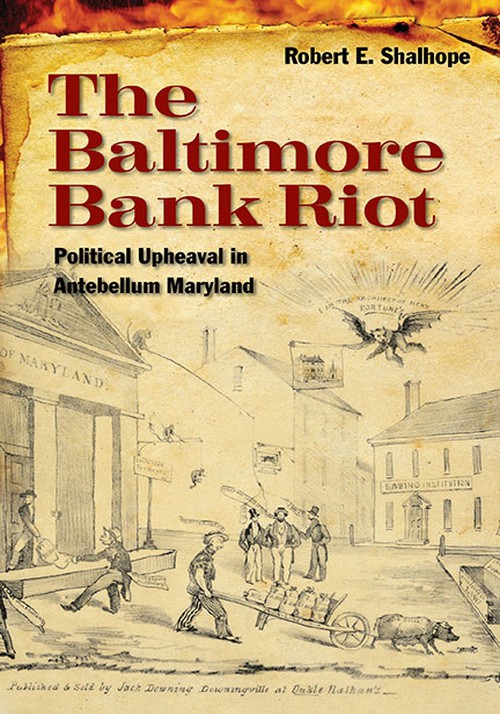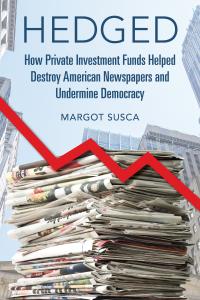
The Baltimore Bank Riot
About the Book
In August 1835, in the midst of a particularly tumultuous year of nationwide unrest and upheaval, Baltimore suffered one of the most violent and destructive riots experienced by any antebellum American city. Fueled by a growing outrage over frauds associated with the closing of the Bank of Maryland, rioters devastated the splendid homes of the city's wealthiest and most prominent citizens, and the victims' prized personal possessions were thrown into the streets to be consumed in public bonfires. The authorities completely surrendered the city to the mercy of mobs roaming the streets--mobs supported by the cheers of thousands of bystanders.In this study, Robert E. Shalhope examines the causes and consequences of the Baltimore Bank Riot of 1835 and its relationship to the emergent political culture not only of antebellum Maryland but of the nation at large. He uses the bank riot to investigate the tensions between two countervailing impulses within Maryland society: on the one hand, the vision of an egalitarian, democratic society rooted in traditional communal values and resting on the sovereignty of the people; and on the other, a market-oriented perspective that advocated a more disciplined, ordered society dependent on the power and authority of the state.
The Baltimore Bank Riot explores the constitutional issues emanating from this ideological tension. It also provides insights into similar riots of the 1830s as well as the banking practices characteristic of the early nineteenth century. Deeply informed by an analysis of the newspapers and pamphlets of the time, this book shows how Marylanders grappled with the ideas circulating among the changing social, political, and economic environment of their time.
About the Author
Robert E. Shalhope is George Lynn Cross Professor of History Emeritus at the University of Oklahoma and the author of A Tale of New England: The Diaries of Hiram Harwood, Vermont Farmer, 1810-1837 and several other books.Reviews
"A timely study of past bank frauds and the populist movements that emerged in their wake."--H-SHEAR"A valuable study of a previously understudied event. . . . Anyone interested in the intersection of economic and political change in the era of Jackson would profit from reading this book."--EH.Net
"Shalhope expertly explains the complex Bank of Maryland closure, the riots, and the subsequent trials and indemnity petitions."--The Journal of Southern History
"Shalhope has done a wonderful job. . . . This will be the fundamental study of the Bank riot."--Enterprise & Society
Blurbs
"An exhaustively researched, richly textured account of an important and understudied event of the Jacksonian period. This is a book that all scholars of the period will consult to understand the origins, events, and resolution of that deadly, destructive event."--Thomas Summerhill, author of Harvest of Dissent: Agrarianism in Nineteenth-Century New York
"Robert Shalhope has located a critical event in American history and pinpointed a critical shift in political culture. Historians of the early republic and antebellum America, as well as political scientists studying nineteenth-century political development, will welcome this illuminating text."--Mary P. Ryan, author of Mysteries of Sex: Tracing Women and Men through American History






